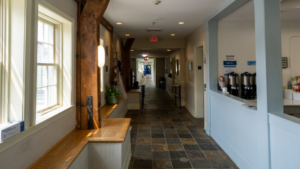Members of the LGBTQ+ community face unique challenges in overcoming addiction, making specialized therapy a crucial component of effective treatment. According to the National Institute on Drug Abuse (NIDA), LGBTQ+ individuals experience higher rates of substance use disorders due to discrimination, social stigma, and barriers to healthcare.
Many people in the LGBTQ+ community struggle with family rejection, limited access to affirming care and societal prejudice. These experiences often lead to anxiety, depression and other mental health conditions that increase the risk of using drugs or alcohol as coping mechanisms. Understanding these distinct challenges helps explain why specialized addiction treatment incorporating therapy plays such a vital role in recovery.
How Therapy Supports LGBTQ+ Recovery
Therapy addresses the complex emotional and psychological factors that often underlie addiction in LGBTQ+ individuals. Here’s why therapeutic support proves especially valuable:
Processing Trauma and Mental Health
Many LGBTQ+ individuals carry trauma from discrimination, bullying or rejection. These experiences can trigger post-traumatic stress disorder, depression, and anxiety – all risk factors for substance use. Trauma-informed therapy provides a safe space to work through these experiences and develop healthier coping strategies.

Building a Supportive Environment
Traditional addiction programs may not fully address LGBTQ+ experiences and needs. Specialized therapy with affirming professionals creates a judgment-free zone where individuals can openly discuss their challenges. This acceptance and understanding proves essential for sustained recovery.
Developing Better Coping Skills
Instead of turning to substances to manage stress and societal pressures, therapy equips individuals with proven coping techniques. These include mindfulness practices, cognitive-behavioral strategies and emotional regulation skills that support long-term sobriety.
Addressing Identity and Self-Acceptance
Internalized shame or uncertainty about identity can fuel substance use. Therapy helps individuals explore and embrace their authentic selves while building self-esteem – reducing emotional distress that often leads to addiction.

Healing Relationships
Many people need to repair strained connections with family, partners, or friends during recovery. Therapy can help mend these relationships while teaching loved ones how to provide healthy support.
Swift River’s Approach to LGBTQ+ Addiction Treatment
At Swift River, we recognize the distinct challenges LGBTQ+ individuals face in overcoming addiction. Our evidence-based programs provide specialized therapy and comprehensive support:
Personalized Therapeutic Care
Licensed therapists offer individual counseling to address personal struggles, trauma, and co-occurring mental health conditions. LGBTQ+ support groups create community and shared understanding among peers with similar experiences.
Comprehensive Mental Health Treatment
Our dual diagnosis approach treats both addiction and mental health disorders simultaneously, reducing relapse risk and supporting lasting recovery.
Trauma-Informed Support
Understanding trauma’s impact guides our treatment approach. We help individuals process past experiences while building resilience for the future.
Evidence-Based Methods
We integrate proven treatments including cognitive-behavioral therapy, dialectical behavior therapy and mindfulness practices. These approaches help manage stress, build confidence, and develop healthy coping skills.
Safe and Inclusive Environment
Our team prioritizes creating a welcoming space where LGBTQ+ individuals feel respected and supported throughout their recovery journey.
Finding Your Path: Treatment Options at Swift River
Swift River offers a comprehensive range of therapy programs to meet your unique needs:
- Addiction Therapy Programs: Our core addiction treatment combines clinical expertise with compassionate care to address substance use disorders at their root.
- Individual and Group Therapy: Choose from one-on-one counseling for personal attention or group sessions to build community and shared understanding. Both approaches provide vital support for your recovery journey.
- Family Therapy: Heal relationships and build stronger support systems with family therapy sessions that help loved ones understand addiction and recovery.
- Cognitive Behavioral Therapy (CBT): Learn to identify and change harmful thought patterns and behaviors while developing healthier coping strategies.
- Dialectical Behavioral Therapy (DBT): Master emotional regulation, mindfulness, and interpersonal effectiveness skills to support long-term recovery.
- 12-Step Rehab Programs: Connect with a proven recovery framework and supportive community through traditional 12-step programs.
- Veteran Support Programs: Access specialized care that addresses the unique challenges veterans face in addiction recovery.
- Psychotherapy: Work through underlying mental health challenges with evidence-based psychological support.
Not sure where to start? Our experienced team will help you explore these options and create a personalized treatment plan that fits your specific needs and goals. You don’t have to figure this out alone – we’re here to guide you every step of the way.
Begin Your Recovery Journey Here at Swift River
Recovery becomes possible with the right support. Our compassionate team understands the unique challenges you face and stands ready to help. Call us today to learn more about our LGBTQ+-inclusive addiction treatment programs.
Your path to healing starts here – reach out today for confidential support and guidance toward a healthier future.












